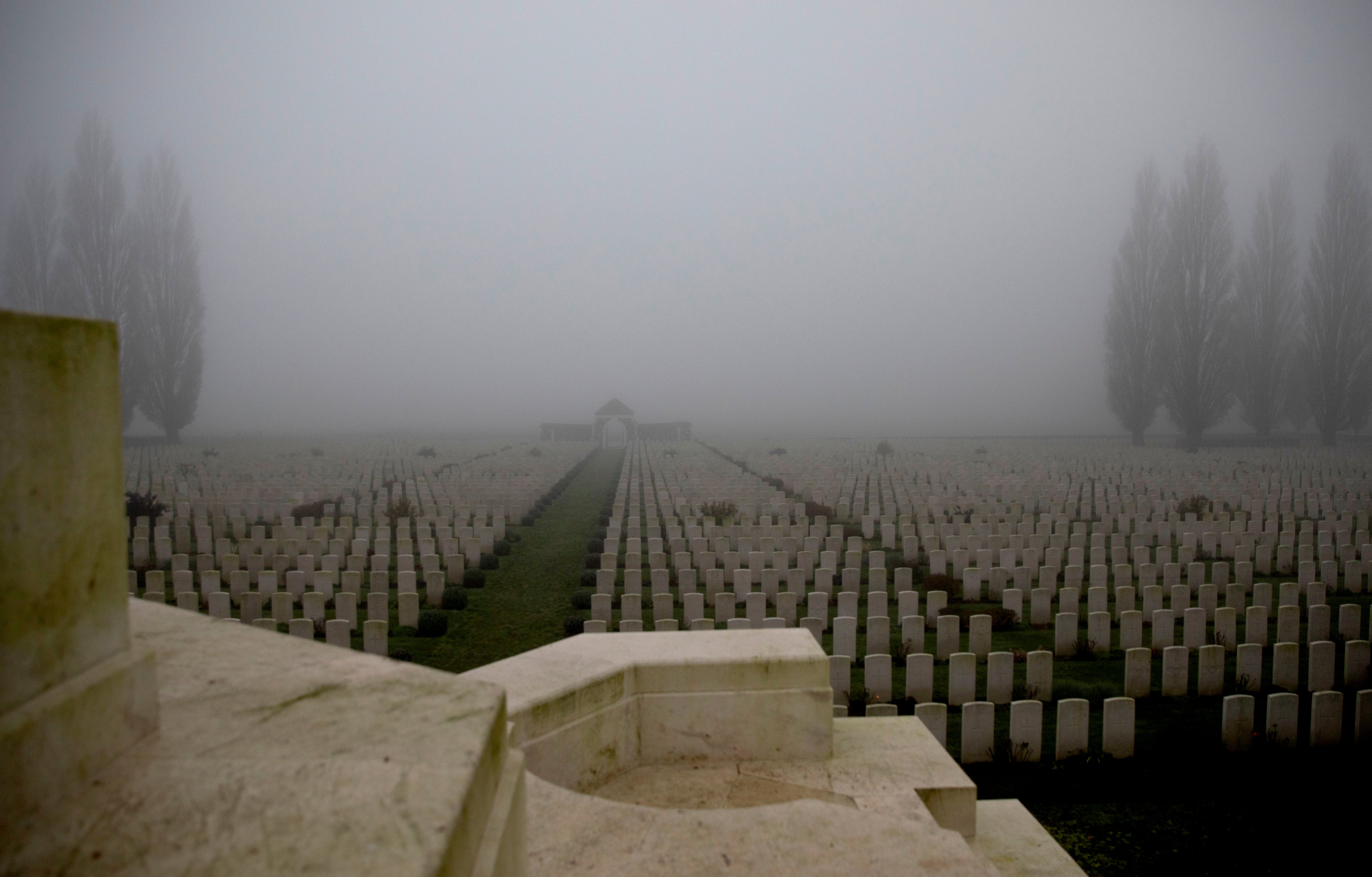Coronavirus makes for one of the loneliest Remembrance Days
The coronavirus pandemic has made sure that the remembrance of the millions who died fighting in the 1914-1918 World War I was one of the loneliest ever

Your support helps us to tell the story
From reproductive rights to climate change to Big Tech, The Independent is on the ground when the story is developing. Whether it's investigating the financials of Elon Musk's pro-Trump PAC or producing our latest documentary, 'The A Word', which shines a light on the American women fighting for reproductive rights, we know how important it is to parse out the facts from the messaging.
At such a critical moment in US history, we need reporters on the ground. Your donation allows us to keep sending journalists to speak to both sides of the story.
The Independent is trusted by Americans across the entire political spectrum. And unlike many other quality news outlets, we choose not to lock Americans out of our reporting and analysis with paywalls. We believe quality journalism should be available to everyone, paid for by those who can afford it.
Your support makes all the difference.When a dawn fog lifted over countless World War I cemeteries and monuments in Belgium and France Wednesday, the pandemic ensured that the remembrance of the millions killed in the 1914-1918 conflict was one of the loneliest ever.
Under the Menin Gate in western Belgium's Ypres at the heart of the blood-drenched Flanders Fields, usually thousands gather to pay tribute. On Wednesday, only half a dozen were allowed at the monument carved with the names of more than 54,000 fallen British and Commonwealth soldiers who have no known grave.
It made the mournful melody of the “Last Post" played by lone bugler Tonny Desodt even more poignant.
“We don't do this for the crowds, even though their appreciation is welcome. We primarily do this for the names chiseled on the walls," Desodt told VRT network. The circumstances also hit home for him, since his wife is a nurse at a COVID-19 ward at a local hospital.
The nearby Flanders Field American Cemetery and the Commonwealth Tyne Cot were all closed due to pandemic precautions.
Somber remembrances were held from London to Paris and at many places along the former Western Front, where Ypres saw some of the bloodiest battles in a war remembered for brutal trench warfare and the first use of chemical weapons.
WWI pitted the armies of France, the British empire, Russia and the U.S. against a German-led coalition that included the Austro-Hungarian and Ottoman empires. Almost 10 million soldiers died, sometimes tens of thousands on a single day.
In Paris, President Emmanuel Macron paid tribute to wartime Prime Minister Georges Clemenceau at a statue in his honor, then laid a wreath of red, white and blue flowers representing the tricolor French flag at the Tomb of the Unknown Soldier, and re-ignited the flame.
Military musicians played the French version of “Taps,” and after a minute of solemn silence a military choir sang the Marseillaise, a capella. The public was kept away from the ceremony and the military presence was sharply reduced.
Several military figures wore blue masks decorated with blue cornflowers, France’s symbol of World War I. Macron wore a cornflower pin on his lapel and a black mask.
Also, to mark 100 years since an unidentified soldier killed at Verdun was buried beneath the Arc de Triomphe, French soldiers organized a memorial run from Verdun to Paris to pay homage to all French soldiers killed in conflict. They ran for five days, dressed in WWI-era uniforms, with weapons slung over their backs.
___
Casert reported from Brussels, Angela Charlton contributed from Paris, Danica Kirka from London.